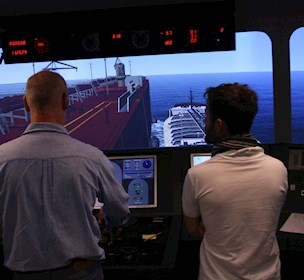Simulator based training
It is commonly acknowledged that training in a virtual environment enhances skills and accumulates experience much faster than what is possible with traditional on the job training.
This form of training enables crews, both individually and collectively, to experience and establish the performance envelope of the vessel they are operating for given conditions. This instils confidence and increases skills as well as awareness regarding efficiency, safety, environment and communication.
We have developed a learning concept based on best practice and pedagogical methods with proven results. The methods we have developed are internationally recognized and used by other domains such as air traffic controllers and power plant operators.
Good training is learning
The key to good training is learning and not teaching. That is why we ask two questions when we plan a course: In which future situations may the participant utilize the understanding? What should they be able to do in such a situation? The answers determine the content and approach but also ensures that the course is perceived with a logical progression from the participant’s perspective.Pedagogical aspects
Our pedagogical methods are primarily based on participant logical methods and discovery learning. All aspects of the course planning, scenario development and debriefing sessions follow structured and carefully planned methods.All instructors are certified in pedagogical methods for simulator training and are able to train junior officers as well as very experienced captains and senior officers.
We use extensive debriefing sessions after each training session where we among other tools use replay systems to illustrate the participant’s performance. This is done in a structured manner as part of a continuous process during the whole training course whit the objective of making the participant’s conscious and reflective about their behaviour and decision process.


